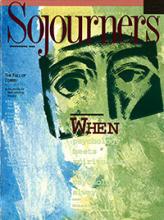Perhaps because of the current discussion about Christopher Columbus' legacy, I have found myself thinking about a flat world. And whenever I think about a flat world, I think of North Dakota. And, of course, whenever I think of "The Peace Garden State," I remember the wealth of culture it offers. So as the leaves fall and the snow prepares to do the same, I find my mind wandering and wondering about the great icon of popular culture from North Dakota: Lawrence Welk.
A One and A Two ...
Many who know me are surprised by my interest in and enjoyment of Lawrence Welk and his ensemble. Growing up I watched weekly as the horns, singers, dancers, and conductor choreographed an image as much as a show, never too sure whether I liked the subtle messages of the performances, but aware that a lot of people deeply enjoyed the show. It made them feel good. Whether my tastes caused me to prefer Wolfman Jack (The Midnight Special) or Dick Clark or Soul Train did not much matter, I pretty consistently watched the Bubble Man.
And now Lawrence Welk is back in the public eye. Not only because of the continuing popularity of his show -- which by the way is the most popular PBS program currently -- but also because of a debate about federal aid to rehab Larry's boyhood sod home as a tribute to German-Russian settlers. Welk's boyhood home would become a museum of sorts.
Read the Full Article

